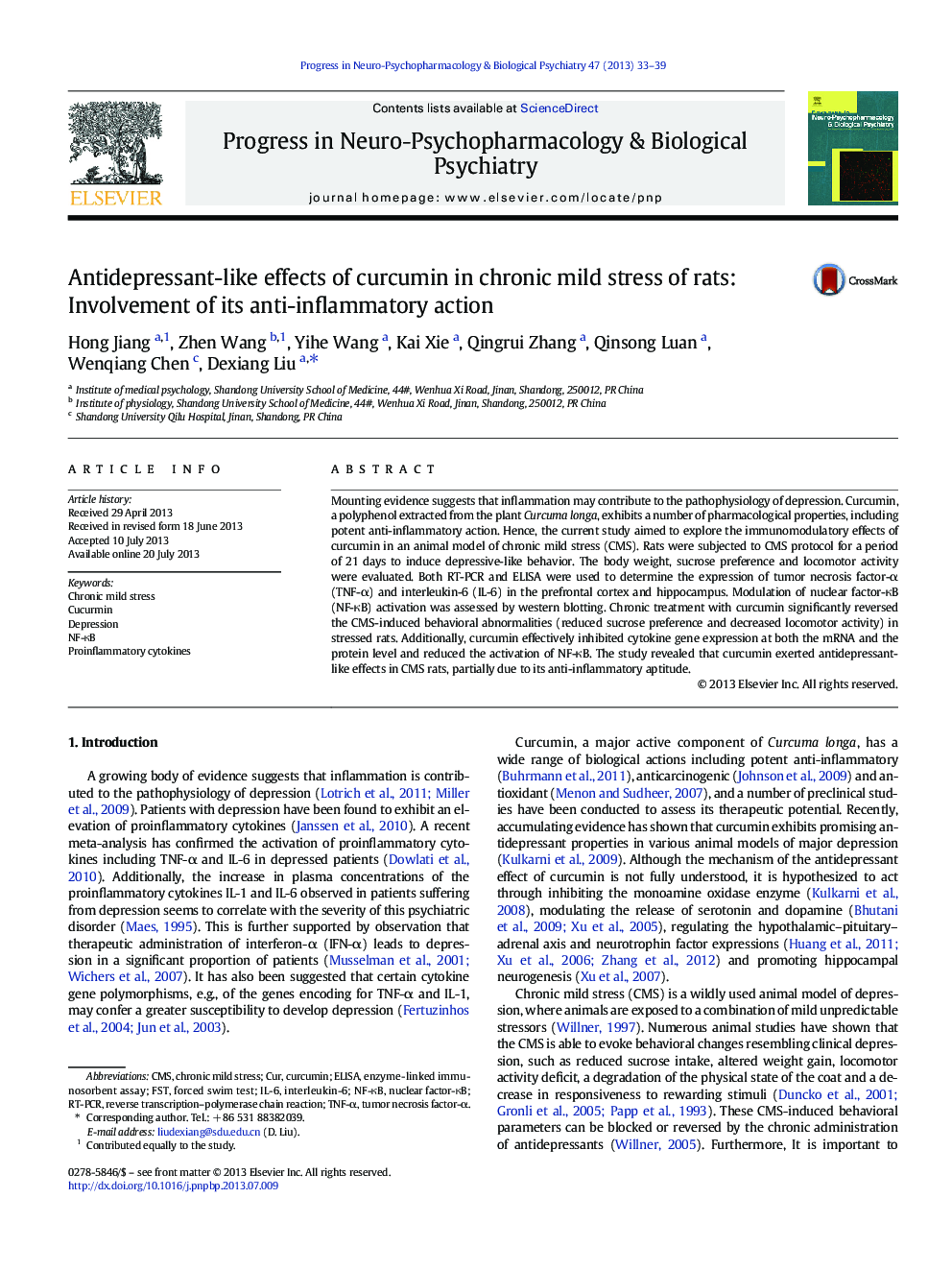| Article ID | Journal | Published Year | Pages | File Type |
|---|---|---|---|---|
| 2564892 | Progress in Neuro-Psychopharmacology and Biological Psychiatry | 2013 | 7 Pages |
•Curcumin reversed the CMS-induced behavioral abnormalities in rats.•Curcumin inhibited cytokines in cerebral cortex and hippocampus.•Curcumin reduced the activation of NF-κB.
Mounting evidence suggests that inflammation may contribute to the pathophysiology of depression. Curcumin, a polyphenol extracted from the plant Curcuma longa, exhibits a number of pharmacological properties, including potent anti-inflammatory action. Hence, the current study aimed to explore the immunomodulatory effects of curcumin in an animal model of chronic mild stress (CMS). Rats were subjected to CMS protocol for a period of 21 days to induce depressive-like behavior. The body weight, sucrose preference and locomotor activity were evaluated. Both RT-PCR and ELISA were used to determine the expression of tumor necrosis factor-α (TNF-α) and interleukin-6 (IL-6) in the prefrontal cortex and hippocampus. Modulation of nuclear factor-κB (NF-κB) activation was assessed by western blotting. Chronic treatment with curcumin significantly reversed the CMS-induced behavioral abnormalities (reduced sucrose preference and decreased locomotor activity) in stressed rats. Additionally, curcumin effectively inhibited cytokine gene expression at both the mRNA and the protein level and reduced the activation of NF-κB. The study revealed that curcumin exerted antidepressant-like effects in CMS rats, partially due to its anti-inflammatory aptitude.
